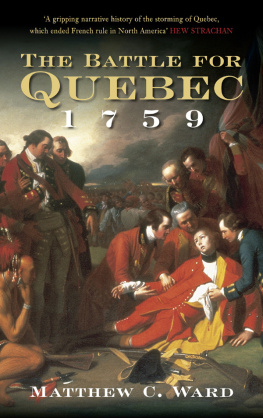Hope that heavenly, healing balm, that gift from Providence, blended with persecutions to blunt the sharpness of their sting and hinder the unfortunate from being overwhelmed, and sinking under the load of their afflictions, never dies outnever abandons the distressed. "We don't believe in dangers," says Machiavel, "until they are over our heads; but we entertain hopes of escaping them when at a great distance." Hope does not abandon the pale, dying man: in his agony he still fells life, and in his thoughts he does not detach himself from it. Death strikes, before his heart has realized that he could cease to live. Search in the prisons: hope dwells there with the wretch who next day is to undergo his sentence of death. Every time the bolts rattle, he believes his deliverance entering with the jailer. Whole years of slavery have not been able to wear out this consoling sentiment. These contradictionsthese differences of seeingthese returnsthis stormy flow and ebb, are so many effects of hope, which plays upon us and never ceases. It is inherent in human nature to hope in adversity for a favorable change of fate, however the appearances may be ill-grounded of an end to its pain and suffering.
The Canadians, without the least apparent reason, still flattered themselves to save their country, and did not lose the hope of retaking Quebec, though without artillery and warlike stores. All minds were occupied during the winter in forming projects of capturing that town, which were entirely chimerical, void of common sense, and nowise practicable. No country ever hatched a greater numbernever projects more ridiculous and extravagant; everybody meddled. The contagion spread even to my Lord Bishop and his seminary of priests, who gave their plan, which, like all the others, lacked only common sense and judgment. In short, a universal insanity prevailed at Montreal. Amongst thousands of the productions of these distempered brains, that of surprising Quebec by a forced march in winter and taking it by escalade, was the only one where there was the least chance of success. This project was for some time agitated so seriously, that workmen were employed in making wooden ladders; but having always looked upon it as a wild and extravagant fancy of priests and old women, I constantly argued against it whenever they spoke of it, and it was continually the topic of conversation.
The Upper Town of Quebec lies upon the top of a rock, about two hundred feet high, almost perpendicular in some parts of it, and everywhere extremely steep and inaccessible, excepting towards the Hauteurs d'Abraham, which is a continuation of the same hill, that begins at Quebec and ends at Cap Rouge, diminishing gradually in height in the space of these three leagues. The Lower Town is a narrow piece of ground, from a hundred to four or five paces broad, between the foot of the rock and the St. Lawrence.
There is a street which goes up to the Upper Town without a continuation of houses; it is impossible to climb up the rock from the Lower Town, as I was employed three weeks upon it with miners and other workmen, to render all the footpaths impracticable; we finished only a few days before the arrival of the English fleet (in 1759). A town built upon a vast extent of ground, which would require an army to defend it, such as Ghent in Flanders, and which might be approached on all sides at the same time, in order to divide the troops of the garrison equally over all the town, may be surprised and taken by escalade, and in our desperate situation might have been attempted by risking all for all. A surprise in a dark night must naturally spread universal terror, disorder and panic amongst those who are taken unawares, and must soon be communicated through all the quarters of the town. The soldiers are so much the more terrified that they know not where they are most in danger; not like during a siege, where the place for the assault is marked by the breach. Their heads turn, and, deprived of judgment, coolness and reflection, they think rather of escaping the slaughter that ensues when a town is being captured in this manner, than of defending the ramparts. But Quebec being accessible only on that side of it which faces the heights of Abraham, and having nothing to fear elsewhere, the moment an alarm is sounded, all the force of the garrison must naturally be there. Thus the English having seven thousand men in the townalmost as many as our army proposed for the escalade to invest all that part of the town open to attackit is likely that we should have lost the half of our army in the attempt, and at last, after a horrible slaughter of men, have been obliged to return ignominiously from whence we came. Besides, supposing that we had even taken the Lower Town by escalade, we would not have been further advanced. The English, in half an hour afterwards, by burning it, by throwing down from the Upper Town upon the roofs of the houses fire pots, shells and other combustible matter, could have soon chased us out of it, or buried us under its ruins. This project, after having furnished for a long time matter for the daily conversations of Montrealers, was at last considered by M. de Levis, and classed as it deserved, amongst the vagaries of bedlam; he substituting a scheme in its place which was reasonable, well combined, doing honor to his ability and talent.
The four or five paces of 1760 have now attained seven or eight acres.(L)
M. de Levis, in giving an account to the Court of the loss of all our artillery and stores at Quebec, gave likewise all possible assurances that he would re-take the town in the spring and save the colony, provided they would send to him from Europe a ship loaded with field-pieces and ammunition, to set sail from Europe in the month of February, in order to be in the St. Lawrence river before the arrival of the English, and near Quebec in the month of April. He collected our army as soon as the season permitted; got together about twelve pieces of old cannon, which had been laid aside for many years, and with a small quantity of gunpowder and very few bullets, he set out from Montreal with his army towards the beginning of April, the snow being as yet upon the ground; and he conducted his march so well that the army arrived at Cap Rouge, three leagues from Quebec, without the enemy having any information of their having left Montreal. He did not flatter himself to be able to take Quebec with such a despicable train of artillery, and his design was only to invest the town; to open the trenches before it; to advance his approaches, and be in a position, the moment the ships he had asked from the Court should arrive, to land the cannon, placing them instantly upon the batteries ready to receive them, and without loss of time to batter the town immediately.
Fortune favored him to the height of his wishes, and if the ships had arrived with the artillery he expected from France, that town could scarce have held out for four and twenty hours, by which means he would have had the glory of preserving to his country the colony of Canada, then reduced to its last gasp.
The English got the news of our army's being at Cap Rouge by a most singular accident, which greatly manifests the predominant power of Fortune in military operations, and shows that the greatest general cannot guarantee success or put himself out of the reach of those events which human understanding cannot foresee, whereby the best combined and well-formed schemes are frustrated in their execution. In all appearance we would have taken Quebec by surprise had it not been for one of Fortune's caprices, that have often as much share in the events of war as the genius and talents of the greatest generals.










